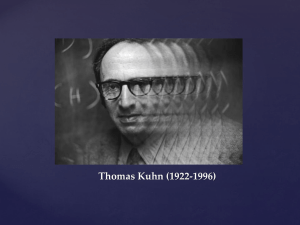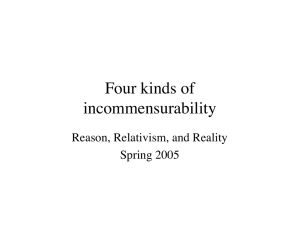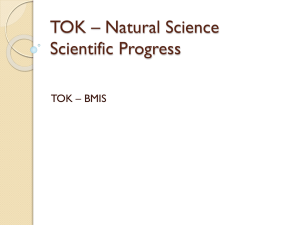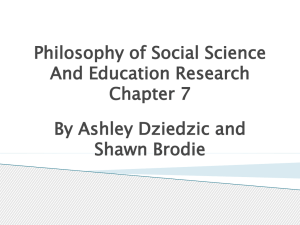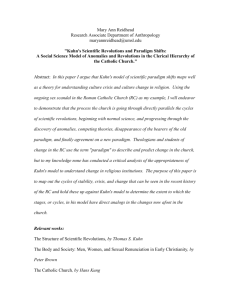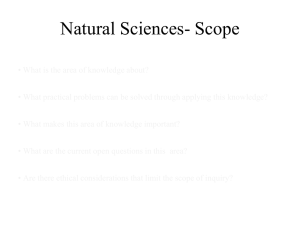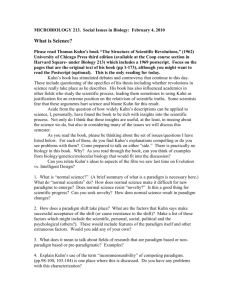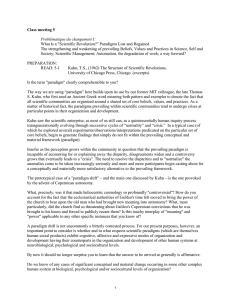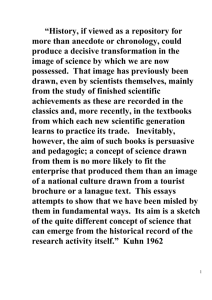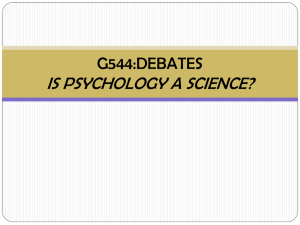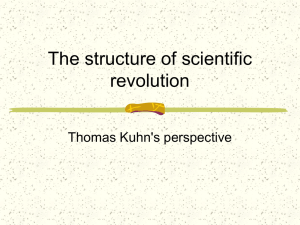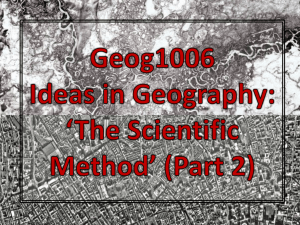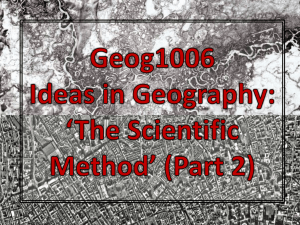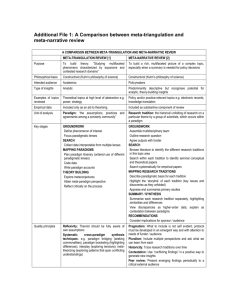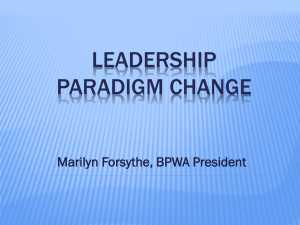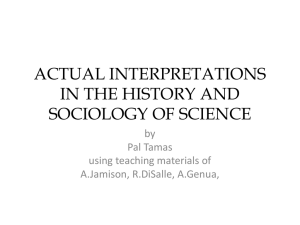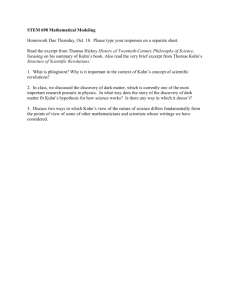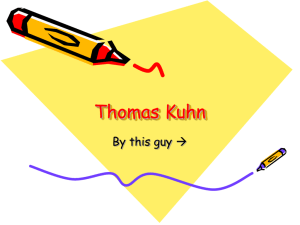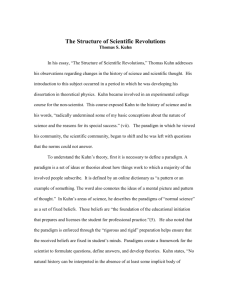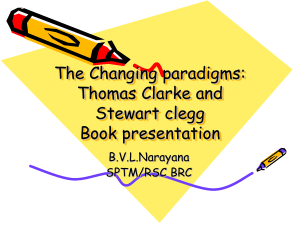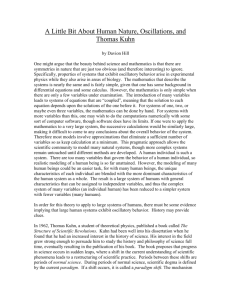Philosophy of science
advertisement
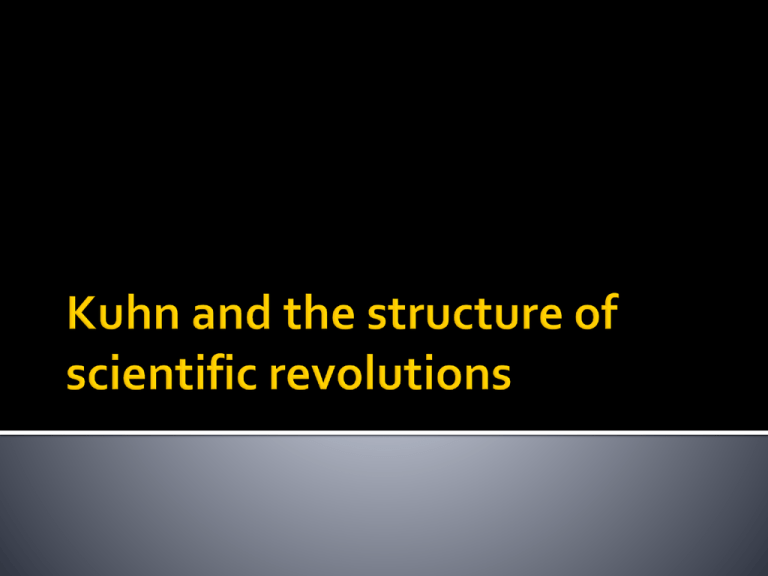
Topics due Friday. Thought papers and discussion grades Method and proposal sign ups How do inductive and deductive research fit together? Explain metaphysics, positivism, determinism, post-positivism, critical realism, constructivism, and evolutionary epistemology. What do these approaches have to do with how science is conducted and interpreted? What is Kuhn? Science as cumulative vs. revolutionary Rules of science change with new paradigms vs. Popper Do we falsify or do we confirm? Can we say what’s a “better” PD? What is Kuhn’s view of how science progresses? Is science cumulative? What is pre-paradigm period like? What is a paradigm? Why are they useful? When is a field a science? What is normal vs. extraordinary science? What is a “good scientist”? How does that affect the types of questions we ask? How do paradigms change? Who changes them? How does the new one get picked? How do we know when a paradigm changes? What does a paradigm affect? How do paradigm changes affect what we already “know”? What is the difference between a paradigm and a theory? What is the role of a student? How do textbooks play a role? What is a scientific community? How does it differ from other types of communities? How does peer-review relate to Kuhn’s ideas? What does Kuhn think of psychology? Kuhn was “not anti-psychology, only rather bored with psychologists generally who, on the whole, he thought were not serious about much other than playing safe…If he had a specific complaint about the social sciences, it was not that they were not “advanced” but that they somehow lacked a sense of how they were going about their enterprises” (J. Bruner, p.c., cited in Driver-Linn, 2003) Do we have a paradigm? What is it? A PD has 1) symbolic generalizations (rules); 2) metaphysical paradigms (shared commitment to beliefs); 3) values; 4) exemplars (concrete problems with solutions) Are there things we see now that we couldn’t before? Do we have agreements on our commitments in these areas?: Conceptual Theoretical Instrumental Methodological How do these affect how we see things? Do they differ by area of psychology? How do our paradigms affect what we study? How we study it? Do we have taboo topics? What do our textbooks tell us about our paradigm(s)? Have those changed over time? What are some myths our textbooks have promulgated? Did we have a pre-paradigm phase, or are we still in it? What is an example of a paradigm change? Of a crisis? How do theories and paradigms constrain psychology? How are they good? How does this relate to cross-cultural or interdisciplinary research? How do Kuhn’s ideas relate to HARKing? Confirmation bias? phacking? Nonlinear systems ? How do Kuhn’s ideas relate to graduate training? Should we be doing it differently? How does our way of doing it differ (if it does) from other sciences? Should we be doing normal or extraordinary science? What are psych examples? How does Kuhn define a science? Is psychology a science? Why are we so defensive about that? Why do we care? Does anyone else? Driver-Linn, 2003 Is there a truth? Is science moving closer to it? What is the “alternative” to science? Does science have to be theory driven? Paradigm-driven? Critiques of Kuhn?
